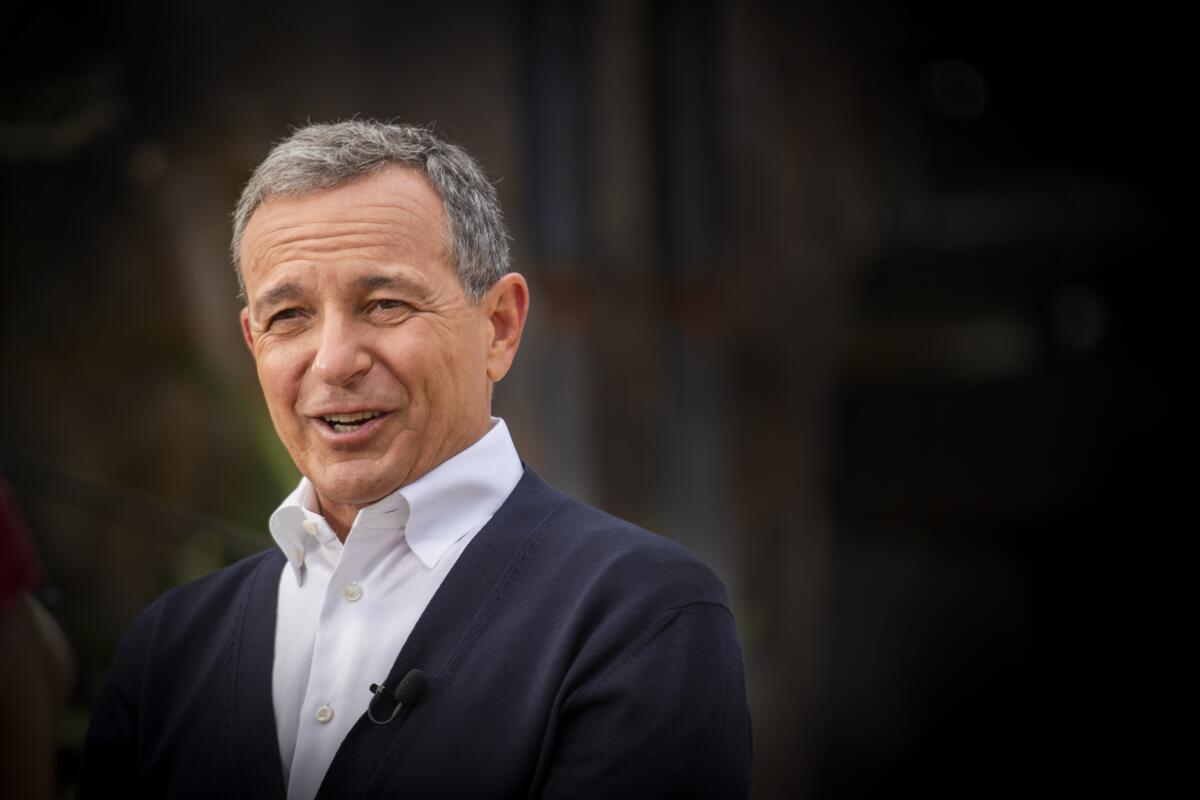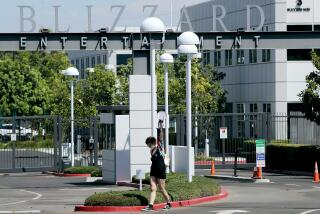Disney layoffs begin this week. Iger says 7,000 job cuts to finish before summer

Walt Disney Co. this week begins its plan to cut 7,000 jobs as part of a wider effort to rejuvenate the Burbank entertainment giant’s finances and reach profitability at its streaming business.
The first wave of employees facing layoffs will be notified by Disney bosses over the next four days, Chief Executive Bob Iger said in a Monday memo to staff. A second, larger round of cuts will come in April with “several thousand more staff reductions,” followed by a final group before the beginning of summer.
The layoffs are spread throughout the company, affecting roles in the units formerly known as Disney General Entertainment and Disney Media and Entertainment Distribution, as well as corporate positions and jobs in the theme parks, experiences and consumer products business, according to people familiar with the matter.
“The difficult reality of many colleagues and friends leaving Disney is not something we take lightly,” Iger wrote. “For our employees who aren’t impacted, I want to acknowledge that there will no doubt be challenges ahead as we continue building the structures and functions that will enable us to be successful moving forward.”
The earnings report came as Walt Disney Co. faces a challenge from an outsider, billionaire investor Nelson Peltz, who is seeking election to join the board.
The layoffs were expected.
Iger in February said the company would be shedding workers to help save $5.5 billion in costs in a sign of Hollywood’s retrenchment amid challenges in the business of online video.
The streaming race has been a boon for the production of new shows. But the cuts will reduce how much content Disney makes and what the company spends on its movies and shows.
Iger, the longtime former CEO who took over from the ousted Bob Chapek in November, has specifically highlighted the need to pare back on general entertainment content, calling it “undifferentiated” compared with the company’s best-known franchises.
General entertainment refers to Disney shows and movies that don’t clearly fall into any of the companies’ most popular brands, such as Marvel, “Star Wars” and Pixar. Disney’s general entertainment unit has typically provided shows to ABC and Hulu. Iger has been noncommittal about whether Disney will buy the 33% of Hulu it doesn’t already own from Comcast.
One of Iger’s first moves after coming back to Disney was to announce the dismantling of Disney Media and Entertainment Distribution, a controversial Chapek-era unit that handled distribution strategy.
Disney’s streaming business has continued to bleed cash, losing more than $1 billion during its fiscal first quarter, but the company projects its marquee streamer, Disney+, will be profitable by the end of fiscal 2024.
The cuts underscore the difficulties that Disney and other media giants face as they reckon with the realities of streaming, larger economic woes and the challenges facing Iger.
The reductions also reflect an uncertain environment for entertainment, media and technology companies that expanded too aggressively during the COVID-19 pandemic.
Upon returning to Disney, Iger quickly faced a proxy fight from billionaire activist investor Nelson Peltz, whose investment firm Trian Fund Management accumulated a $900-million stake in Disney and lobbied the company for a seat on its board of directors. Peltz criticized the company for “self-inflicted” wounds, including poor succession planning and the costly acquisition of 21st Century Fox.
Peltz ended his campaign shortly after Iger announced Disney’s cost-cutting plan.
More to Read
Inside the business of entertainment
The Wide Shot brings you news, analysis and insights on everything from streaming wars to production — and what it all means for the future.
You may occasionally receive promotional content from the Los Angeles Times.












